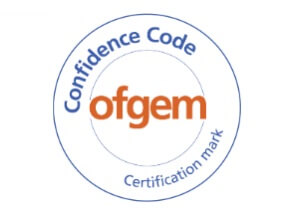 Following the 2014 controversy over the behaviour of price comparison websites, the energy regulator Ofgem has acted.
Following the 2014 controversy over the behaviour of price comparison websites, the energy regulator Ofgem has acted.
In early Autumn last year it was publicly revealed for the first time that price comparison websites, to varying degrees, ‘hide’ those deals that they cannot or do not wish to fulfil and which they cannot monetise.
This came as a shock for many loyal users of price comparison services however the sites themselves defended their policies as commercially essential and even in some cases pointed to their supplier contracts as preventing them from revealing commission levels and operating on a transparent basis. Ofgem did not agree that this was a fair representation.
Price comparison websites have had the option to sign up to a well meaning but weak standard of conduct known as the “Confidence Code” for a number of years. This code was launched by Consumer Focus and designed to improve customer confidence in the services they are using. Ofgem inherited its administration in 2013 and now, in light of the revelations, have significantly revised its intent and requirements .
Explaining their move Ofgem said:
“The previous version of the Code allowed sites to take users straight to a partial view of tariffs from suppliers paying commission to the site. Today’s changes will help customers make an informed choice when using an accredited comparison site”.
Key elements of Ofgem’s modifications are:
Banning Price Comparison Websites from defaulting to a partial view.
Sites must now show all tariffs available in the market unless customers actively choose to select to see a smaller number of tariffs.
Ending the use of confusing language.
Ofgem now require the wording of any choice to be made very clear to site users.
Sites will be required to test and prove that their messaging with consumers is clear and simple.
If a site cannot demonstrate this, it will not be able to give customers a choice of view, and will have to show all tariffs.
The wording of this choice must be approved by Ofgem.
Making commission arrangements transparent.
Sites must explain clearly that they earn commission on tariffs that customers can switch to directly through the site.
Announcing the requirement for Price Comparison Websites to operate on a fairer, more transparent basis Rachel Fletcher, Ofgem’s Senior Partner, said:
“Our market reforms have made it easier for consumers to pick out better deals and switch suppliers. There has never been a better time to switch – consumers can make savings of around £200 by switching. Comparison sites are a great place to start energy shopping, but customers need to feel confident that the sites are providing information they can trust. From the end of March, Confidence Code accredited sites will need to be more transparent with their users and I’d encourage them to meet these new standards earlier.”
Whilst none of Ofgem’s new requirements are anything that a well run, transparent and customer centric organisation would not be doing in the normal course of events it is welcome that they are finally tackling this issue in the energy market.
With a Big 5 Price Comparison Websites, Moneysupermarket, Go Compare, Confused.com, uSwitch and Comparethemarket, almost as well known as the much maligned Big 6 energy suppliers themselves, the move will hopefully have wide reaching impact on improving the transparency of otherwise opaque business practices however currently of the Big 5, only uSwitch and Moneysupermarket are signed up to the confidence code.
Ofgem have promised that the new Confidence Code will be effective as of 1st March 2015 and that a failure to abide by these new terms will see accreditation removed and sites being prevented from carrying the Confidence Code logo.
Step by step we’re moving towards a more transparent energy market, that has to be good news.
